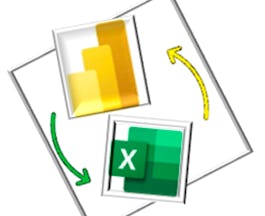Filter by
The language used throughout the course, in both instruction and assessments.
1,041 results for "financial analysis"

Skills you'll gain: Accounting, General Accounting, Financial Accounting, Business Analysis, Data Analysis, Financial Analysis, Cash Management, Finance, Financial Management, Accounts Payable and Receivable, Cost Accounting, Inventory Management, Accounting Software, Sales, Taxes
 Status: Free
Status: FreeKnowledge Accelerators
Skills you'll gain: Data Analysis, Data Model, Data Visualization, Microsoft Excel, Power BI

University of Illinois at Urbana-Champaign
Skills you'll gain: Accounting, Finance, Financial Accounting, General Accounting, Leadership and Management, Accounts Payable and Receivable, Financial Analysis, Cost Accounting, Generally Accepted Accounting Principles (GAAP), Risk Management
 Status: Free
Status: FreeDuke University
Skills you'll gain: Behavioral Economics, Business Psychology, Critical Thinking, Decision Making, Finance, Investment Management, People Analysis, Probability & Statistics, Problem Solving, Strategy
 Status: Free
Status: FreeErasmus University Rotterdam
Skills you'll gain: Finance, Mergers & Acquisitions, Business Analysis, Data Analysis, Financial Analysis, Investment Management, Leadership and Management, Sales, Strategy, Strategy and Operations, Game Theory

University of Illinois at Urbana-Champaign
Skills you'll gain: Market Analysis, Finance, Business Analysis, Financial Analysis, Data Analysis, Behavioral Economics, Decision Making, Econometrics, Probability & Statistics, Accounting, Banking, General Statistics, Statistical Analysis, Leadership and Management, Basic Descriptive Statistics, Exploratory Data Analysis, Financial Accounting, Financial Management, Strategy and Operations, Investment Management, Market Research, Probability Distribution, Regulations and Compliance, Marketing, Risk Management, Securities Trading, Statistical Tests, Correlation And Dependence, Mathematics, Securities Sales, Strategy, Taxes, Game Theory, Regression, Microsoft Excel

University of Pennsylvania
Skills you'll gain: Accounting, Business Analysis, Data Analysis, Financial Analysis, Financial Accounting, Finance, Regulations and Compliance, Leadership and Management
 Status: Free
Status: FreeIllinois Tech
 Status: Free
Status: FreeSkills you'll gain: Finance

University of Illinois at Urbana-Champaign
Skills you'll gain: Accounting, Financial Accounting, Financial Analysis

Skills you'll gain: Data Visualization, Data Analysis, Data Management, Databases, Microsoft Excel, SQL, Data Structures, Python Programming, Basic Descriptive Statistics, Computer Programming, Database Administration, Database Application, Database Design, Database Theory, Spreadsheet Software, Plot (Graphics), Statistical Analysis, General Statistics, Statistical Tests, Statistical Visualization, Probability & Statistics, Data Warehousing, Probability Distribution, Business Analysis, Data Visualization Software, Data Mining, Data Science, Interactive Data Visualization, NoSQL, R Programming, Business Intelligence, Forecasting, PostgreSQL, Tableau Software

University of Illinois at Urbana-Champaign
Skills you'll gain: Behavioral Economics, Decision Making, Market Analysis, Strategy, Problem Solving, Business Analysis, Econometrics, Financial Management
Searches related to financial analysis
In summary, here are 10 of our most popular financial analysis courses
- Intuit Academy Bookkeeping: Intuit
- From Excel to Power BI: Knowledge Accelerators
- Introduction to Financial Analysis - The "Why?": University of Illinois at Urbana-Champaign
- Behavioral Finance: Duke University
- Advanced Valuation and Strategy - M&A, Private Equity, and Venture Capital: Erasmus University Rotterdam
- Managerial Economics and Business Analysis: University of Illinois at Urbana-Champaign
- Accounting Analytics: University of Pennsylvania
- Financial Statement Applications: Illinois Tech
- Fundamentals of Business Finance, with Goldman Sachs 10,000 Women: Goldman Sachs
- Financial Statement and Ratio Analysis for Accountants: University of Illinois at Urbana-Champaign










